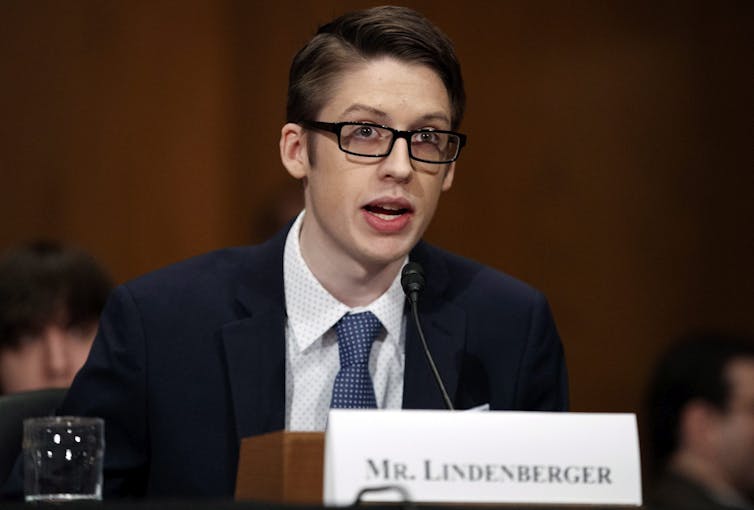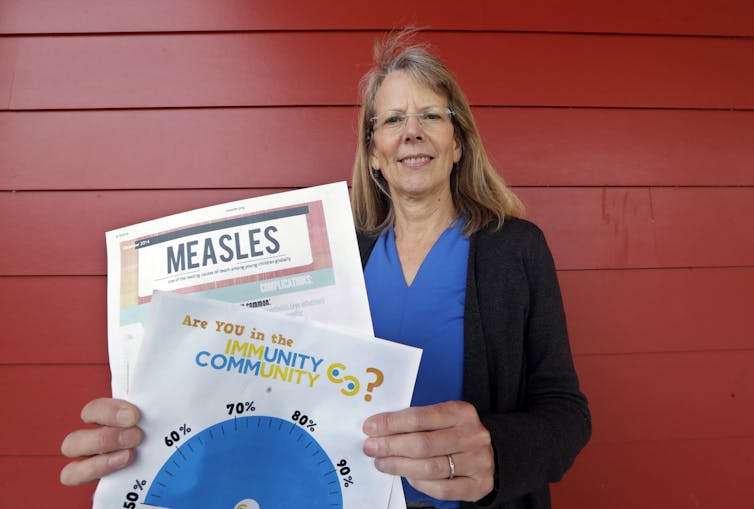A few months ago in the United States, by going against his parent's anti-vaccination views. He got immunized.
At a time of , growing concern about and by the "anti-vaxx" movement, public health advocates around the world hailed this small act of teenage rebellion.
But why was it viewed as such an unusual act? At the time of his decision Ethan was 18 years old. In many countries around the world-including Canada-he would clearly be viewed as a legally competent adult, capable of making his own health-care decisions.
A teen's consent is enough
In Canada, at least for most procedures, the age of consent is likely much younger than 18. (The -which puts the age of consent at 14-differs from the other provinces.)
If an adolescent is the nature of the treatment and the relevant risks and benefits, he or she will be considered a mature minor. This must be . A teenager could be deemed competent for a specific health-care decision at age 16, 14 or, in , even younger.

Ethan Lindenberger testifies during a Senate Committee on Health, Education, Labor, and Pensions hearing on Capitol Hill in Washington, March 5, 2019. (Photo: AP/Carolyn Kaster)
In the context of vaccines, given the (many) and risks (), the age of consent seems likely to be relatively young.
(Yes, despite all the anti-vaxx noise, the risk/benefit ratio for routine vaccines is abundantly clear. Vaccinate.)
If the legal standards of competence are met, then the adolescent's consent is both necessary and sufficient. A parent or guardian need not be involved. Indeed, third parties, including parents, should only be involved after obtaining permission from the mature minor (although, admittedly, the ).
Doctors obliged to inform teens
Perhaps more important, if a doctor, public health nurse or other health-care professional has reason to believe an adolescent is a mature minor and has not been vaccinated, they should, in accordance with their legal and ethical responsibilities, provide the adolescent with information about vaccination.
It seems that when it comes to vaccines, many teenagers may want to hear from doctors rather than their parents. A 2018 study, for example, found that . Only 24 per cent cited parents or guardians.
Of course, respecting the right of teenagers to consent to their own health care will not necessarily lead to more vaccination uptake.
Teenagers are also and . Their views will often map-though not always, as the Ethan Lindenberger story highlights-their parents' views. And, as with adults, .
Still, there is some research that has found of expanded vaccination coverage, such as in the .
Education a public health priority
Yes, ideally you want everyone in a family to be on the same page. You don't want to invite conflict. Family dynamics matter. And going against your parents' wishes, even as a mature 18 year-old, can require more than a bit of bravery. But when a teenager is clearly competent to make a decision on his or her own, exploring vaccination options with a health-care provider should be the norm-not a headline-grabbing anomaly.

High school nurse Sarah Day has been advocating for getting kids their shots against a loud contingent of anti-vaccine parents in the close-knit community of Vashon Island, Wash. (Photo: AP/Elaine Thompson)
In addition, to make it easier for health-care providers, and make readily available the consent framework relevant to minors. If the law permits teenagers to consent, then their consent will be both necessary and sufficient. Health-care providers need to know this and feel comfortable engaging teenagers on this important topic.
This legal reality should also remind us that should be a public health priority.
Vaccinated, educated adolescents are more likely to become tomorrow's-or -science-informed public health advocates.![]()
Timothy Caulfield holds the Canada Research Chair in Health Law and Policy at the ¾ÅÐãÖ±²¥ and is host of the Netflix documentary series, .
This originally appeared May 28 in The Conversation.